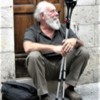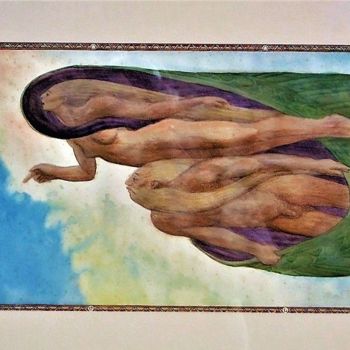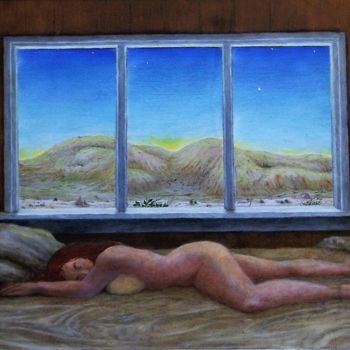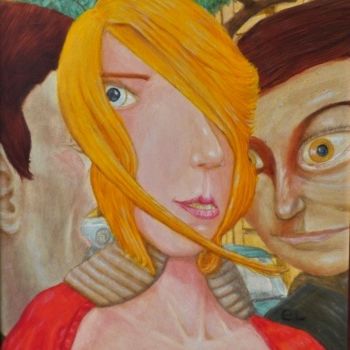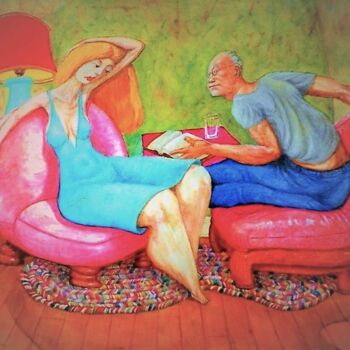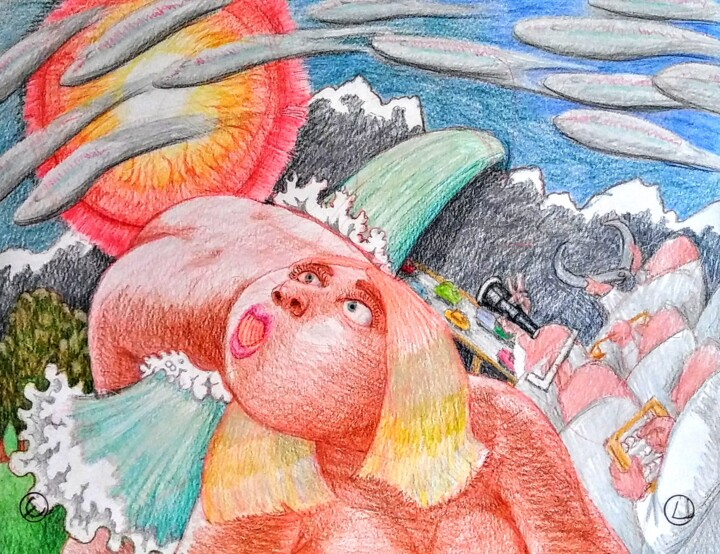


Let us know if you would like to see more photos of this artwork!
- Back of the work / Side of the work
- Details / Signature / Artwork's surface or texture
- Artwork in situation, Other...
Scientists Study the Weather (2022) Drawing by Edwin Loftus
More info
- Packaging (Envelope) All artworks are shipped with a premium carrier, carefully protected and insured.
- Tracking Order tracking until the parcel is delivered to the buyer. A tracking number will be provided so that you can follow the parcel in real-time.
- Delay Worldwide delivery in 3 to 7 days (Estimate)
More info
- Trackable Online Certificate of Authenticity Authenticity Certificates can be verified online at any moment by scanning the artwork code.
- Artist Value Certification Experts study the work and career of an artist then establish an independent and reliable average price value. The average price value situates the artist on a price range for a given period. The experts may also be asked to establish a more precise estimate for a particular work.
More info
100% secure payment with SSL certificate + 3D Secure.
More info
This image is available for download with a licence
Sold by Edwin Loftus
-
Original Artwork (One Of A Kind)
Drawing,
Pastel
on Cardboard
- Dimensions Height 11in, Width 14in
- Artwork's condition The artwork is in perfect condition
- Framing This artwork is not framed
- Categories Drawings under $5,000 Symbolism Science
To provide some context for understanding this:
- "Scientific method" is a collection of procedures by which we attempt to diminish distortions of perception caused by the subjective nature of perception. We attempt to impose objectivity on our subjectivity.
- Objectivity is purely aspirational, because, as Emmanuel Kant and others have argued, all perception is perception of the self. Therefore, all we assume to know about reality is actually just the perception of ourselves hypothetically responding to an existence beyond our ability to perceive.
- Science is based on the theory that there is an "objective" existence, independent of our subjective perceptions. Kant called these, "phenomena" and "noumena". For "science" to have value, there must be a noumena that is the source of the phenomena science studies.
This is significant because there is a competing theory also derived from Kant's (and other's) theories. It is, (in highly simplified form), that what is of value in the noumena, (objective reality), is not what it may have been, but what it is perceived as being. In this view, perception shapes reality in that reality is only known through perception. Whatever reality may be, what matters is what it is perceived as being. The implication of this being that what is real matters less than what is perceived as real.
This position recognizes that one can't simply declare something like gravity is not real and suddenly it will cease to be a factor. But perception actually lines up with a range of possibilities. Somewhere between this and that is what really is. We can't know what it is, but we can recognize that we don't know and think of it as this range of possibilities.
Or ... we can select somewhere in that range and push this assumption. Insofar as that potential is perceived as the most likely or most useful potential, it becomes "reality-insofar-as it is perceived."
This is how "science" becomes a tool of politics instead of a tool for the exploration of reality. If enough people can be convinced that "science" says reality is 'this' and not ' 'that' it qualifies those that see reality as 'this' and not 'that' as "more realistic" in their views and this gives the advocates and beneficiaries of 'this' an advantage over the advocates and beneficiaries of 'that'. And that advantage can translate into social power leading to reality as we experience being dominated by their views rather than those other's views.
Of course, "science" (or the appearance of science) has not been the only way assumptions about the nature of reality have been judged. "Science" as a discipline we teach and develop, is only about 500 years old. Prior to that, systems like "Holy Word", "Learned Opinion", "Established Wisdom", and "Personal Experience" were how one possibility was given significance over another possibility. Those earlier systems are still challenging science and "science" as alternatives today and have become targets of "science" or "pseudoscience" because they interfere with various people's ability to control what is predominantly accepted as possible.
In this image I used "Anthropogenic Global Warming" (changed to "Man-made Climate Change") as an example of this sort of effort. While scientific method has been used to produce some of the evidence used to support this theory, the theory is not a product of anything that could be called scientific method. I have portrayed this with a group of lab-coated men holding various measuring devices to try to study a subject, (Earth's Atmosphere) that is still very far beyond their ability to comprehend, and therefore to predict.
So, this is an image, not about the atmosphere or science, but about the latest of a series of efforts to support one idea about the best organization of societies over another idea.
The foundational issue from which these other issues arise is - Are average human beings of adult age best suited to manage their own lives and social interactions, are they better served by having more capable or better prepared people manage significant elements of their lives for them, or is there, and what is, the best compromise between these?
Related themes
Edwin Loftus is an American painter and draftsman born in 1951. His interest in art began at the age of 4 when he decided to draw something real rather than working from his imagination.
As a child he excelled at drawing and as a teenager he began to experiment with oil painting. In college, he took courses in art and art history and realized that true art had nothing to do with the quality of the drawing or painting, but that it had to have the ambition to push the boundaries and expand the visual experience.
He also studied philosophy, psychology and history and quickly realized that it was just another art establishment trying to defend its elitist industry and reward system. Their skills were almost non-existent, they knew nothing about psychology, perception or stimulus response, and they were extensions of the belief system that made communism, fascism and other forms of totalitarianism such destructive forces in the world. They literally believe that art shouldn't be available to ordinary human beings, but only to an elite "sophisticated" enough to understand it.
Edwin Loftus realized that the emperors of art had no clothes, but they were still the emperors. Gifted in art, he worked hard to acquire this skill. So he found other ways to make a living and sold a few artworks from time to time. For sixty years, many people enjoyed his works and some collected them.
Today, Edwin Loftus is retired. Even if he sold all his paintings for the price he asked, "artist" would be the lowest paid job he ever had... but that's the way it is. It won't matter to him after he dies. He just hopes that some people will like what he does enough to enjoy it in the future.
-
Nationality:
UNITED STATES

- Date of birth : 1951
- Artistic domains: Works by artists with a certified artist value,
- Groups: Certified Artists Contemporary American Artists



